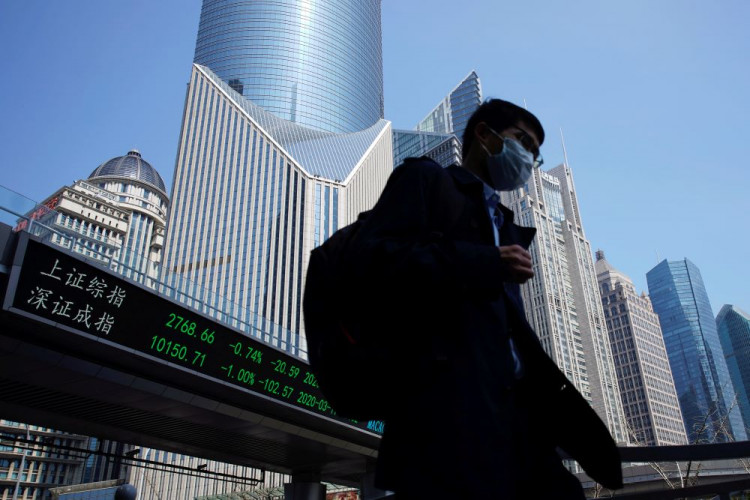Reuters - World financial markets were hit by a wave of uncertainty Friday after U.S. Treasury Secretary Steven Mnuchin called for an end to coronavirus pandemic relief for struggling businesses - sparking a rare clash between the central bank and Treasury.
S&P500 futures slipped 0.7% while Dow futures fell 0.8%, canceling out a firmer lead from a strong Wall Street session overnight. The dollar halted its weeklong slide and the 10-year Treasury yield slipped to the lowest in 10 days to 0.818%.
In Asia, Japan's Nikkei stumbled 0.5% while South Korea's KOSPI index was even and Australia shares were mildly positive. China shares were little changed with the blue chip CSI300 index a shade firmer.
That left MSCI's broadest index of Asia-Pacific shares excluding Japan up 0.2%.
In a letter to U.S. Federal Reserve Chair Jerome Powell, Mnuchin said the $455 billion allocated to the Treasury under the Cares Act should be instead available for Congress to reallocate. He will not extend most of the emergency lending programs run in tandem with the Federal Reserve, a move the central bank immediately criticized, citing the fragile recovery.
Although the programs were not used extensively, Fed officials felt their presence reassured financial markets and investors that credit would remain available to help businesses, local agencies and even nonprofits through the pandemic downturn.
The Fed's exceedingly rare public response reflected a government divided on how to act as the pandemic surges across the nation, threatening a new wave of shutdowns and marking an inflection point of the economic recovery.
Mnuchin's decision added to market anxiety about broader economic growth as data shows the early fast recovery from a historic plunge in the U.S. economy is fading, with more than 10 million who had jobs in January still out of work.
"The Fed has been one of the only sources of stability in Washington and removing its latitude to offer support in a shaky recovery is simply nonsensical," said Isaac Boltansky, director of policy research at Washington-based Compass Point Research & Trading.
Investor sentiment was also affected by data that showed COVID-19 hospitalizations across the U.S. jumped by nearly 50% in the last two weeks, threatening the recovery of the world's largest economy as cities and states began to impose lockdowns.
Nearly 79,000 people were being treated for COVID-19 infections in U.S. hospitals Thursday, a Reuters tally showed, the most at any time during the pandemic. The U.S recorded 161,607 new daily cases on a seven-day rolling average as of Wednesday.
All three major U.S. stock indexes, however, got a healthy boost overnight after Senate Democratic Minority Leader Chuck Schumer said Republican Majority Leader Mitch McConnell had agreed to revive talks to craft a new fiscal relief package.
A senior Democratic aide told Reuters there had been a midafternoon meeting Thursday among congressional aides that discussed coronavirus relief and efforts to pass a $1.4 trillion bill to keep government agencies operating beyond Dec. 11 when current funding expires.
The Dow rose 0.15%, the S&P 500 gained 0.39% and the Nasdaq added 0.87%.
In currencies, the dollar index was last at 92.298, off Thursday's low of 92.236, though still down 0.4% on the week.
The euro fetched $1.1875 while the yen stood at 103.84 per dollar, retaining its weekly gain of 0.8%. The Australian dollar was largely flat at $0.7285, having erased most of its gains this week.
In commodities, oil prices bounced back after falling the previous day, when concerns about coronavirus lockdowns affecting fuel demand weighed on the market.
West Texas Intermediate rose 2 cents to $41.76 a barrel. Brent crude was up 3 cents at $44.23.
Gold was weaker with spot prices off 0.1% at 1,865.3 an ounce.





